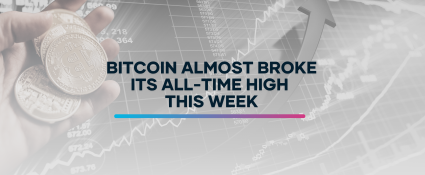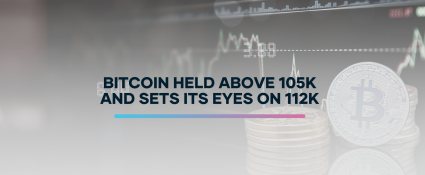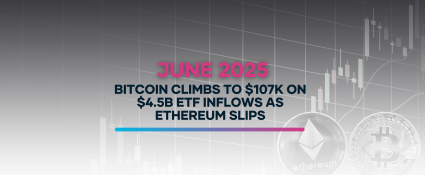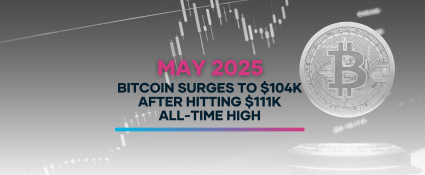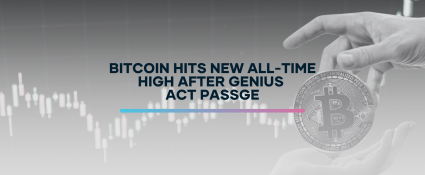Bitcoin Price: US$42,776.10 (-0.84%)
Ethereum Price: US$ 2,530.19 (-2.21%)
Vitalik Buterin, Ethereum’s co-founder, has ignited a discussion on the classification of layer-2 (L2) scaling solutions, stating that Ethereum’s validiums are not genuine rollup solutions. Validiums use zero-knowledge proofs to facilitate off-chain transactions while relying on Ethereum’s mainnet for security and verification. Buterin emphasised the importance of an unconditional security guarantee for rollups, which may not be possible if data availability depends on an external system. Meanwhile, a report from Electric Capital reveals that nearly 9 out of 10 multichain developers are working on Ethereum Virtual Machine-based (EVM) blockchain networks, highlighting the dominance of EVM-compatible chains in the crypto development space. Additionally, Coinbase faced a five-hour SEC hearing, during which the judge delved into the definition of staking and secondary market transactions, and the Terraform Labs case was discussed in relation to Coinbase’s legal battle with the SEC.
The Bitcoin hash rate experienced a 34% drop, attributed to freezing temperatures in Texas, leading some miners to curtail operations amid increased demand on the state’s energy grid. The decline occurred from over 629 exahashes per second on Jan. 11 to about 415 EH/s on Jan. 15, recovering to over 454 EH/s on Jan. 16. Texas, hosting 29% of the U.S. Bitcoin hash rate, saw miners, including Marathon Digital and Riot Platforms, curtailing operations to support the state’s electric grid during extreme weather conditions. In a separate incident, the Rocket Pool X account was hacked, spreading false warnings about the Rocket Pool protocol being compromised. Meanwhile, Ethereum’s “Dencun” upgrade, aimed at lowering transaction costs on layer 2 solutions, went live on the Goerli testnet after a four-hour delay caused by a bug, showcasing the development team’s efficient debugging capabilities.
The Wormhole cross-chain protocol has rebounded to a total value locked (TVL) of $1.02 billion, marking a 300% increase from its low of $234 million earlier in the year. Ether, Fantom, and Solana’s SOL assets lead the protocol’s TVL, standing at $675 million, $174 million, and $96 million, respectively. Wormhole’s TVL reached a peak of $3.8 billion 16 months ago before the Terra ecosystem’s collapse and the crypto winter. The recovery follows a $225 million capital infusion in November 2023 and a counter-exploit by Jump Crypto against a Wormhole hacker, leading to the recovery of $225 million in users’ assets. Meanwhile, asset management firm VanEck plans to close and liquidate its Bitcoin Strategy ETF less than two years after its launch, citing performance, liquidity, and investor interest considerations. Shareholders can sell their shares until Jan. 30, with the fund, tickered as XBTF, set to be delisted by Feb. 6. In contrast, ProShares is seeking to launch five Bitcoin ETFs with indirect exposure, including leveraged and inverse offerings tied to the Bloomberg Galaxy Bitcoin Index. The filing comes days after the SEC approved the first 10 spot Bitcoin ETFs in the U.S., with ProShares aiming to benefit from Bitcoin price fluctuations through these ETFs.
Since the launch of spot Bitcoin exchange-traded funds (ETFs) in the U.S. on January 11, the three days have seen trading volumes surpass $10 billion, according to data from Bloomberg Intelligence analyst James Seyffart. Despite the frenetic trading activity, the impact on BTC price growth has been minimal, leading to some scepticism. However, Eric Balchunas, another Bloomberg analyst, emphasised the significance of the $10 billion volume, comparing it to the combined volume of 500 ETFs launched in 2023, which amounted to $450 million. Notably, the BlackRock iShares Bitcoin Trust (IBIT) has gained $700 million in net inflows over three days, while Grayscale Bitcoin Trust (GBTC) has experienced net outflows of over $1.1 billion, attributed to investors switching to ETFs with lower fees. In other news, a survey by José Simeón Cañas Central American University in El Salvador revealed that 12% of the population used Bitcoin for purchases in 2023, down from 24.4% in 2022. The survey indicated that 6.8% of respondents felt their family’s life improved with Bitcoin as legal tender, while 77.1% wanted the government to stop spending public money on Bitcoin. Additionally, an estimated $1.1 billion has flowed out of Grayscale’s spot Bitcoin ETF in the last three days as investors exited after the discount narrowed, marking a significant shift after the GBTC arbitrage trade opportunities diminished when the premium turned to a discount in February 2021. Meanwhile, Cathie Wood’s ARK Invest has started buying its recently approved ARK 21Shares Bitcoin ETF (ARKB) and sold shares of ProShares Bitcoin Strategy ETF (BITO) and other tech-focused shares in its ARK Next Generation Internet ETF. ARKB currently holds 2,535 Bitcoin, making it the fifth-largest Bitcoin stack among the 10 spot Bitcoin ETF issuers.
Source: https://cointelegraph.com
Disclaimer: The following summaries are provided for informational purposes only and are not intended to infringe upon any copyrights. All rights to the original content belong to their respective owners, and the summaries are intended to provide a brief overview of the content. If you are the owner of any of the content summarised here and have concerns about its use, please contact us to discuss the matter further.

